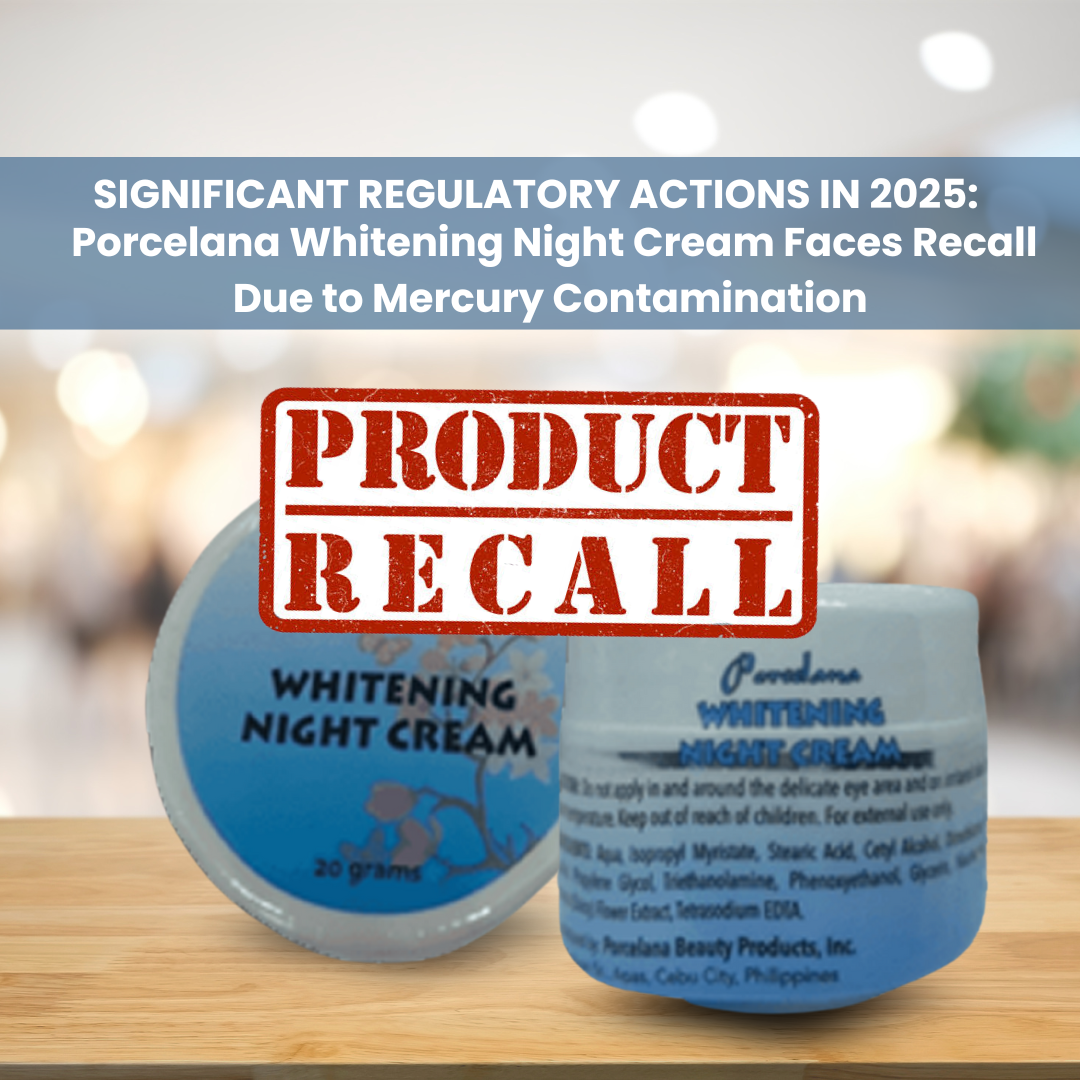Description of the product
Brand Name: Porcelana
Name of the product: Whitening Night Cream
Product Origin: Mexico
Packaging Type: Small plastic cosmetic jars (57g or 2 oz.)
Issue: Toxic mercury levels found beyond federal safety limits ascertain evil consequence






